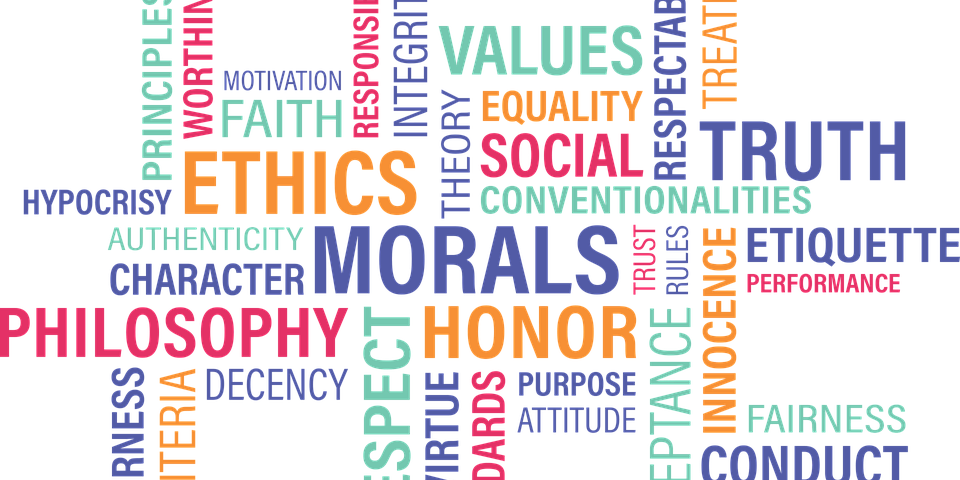The responsibility of global managers
 Global managers have a huge responsibility to take on. With the ever-changing growth, development and needs dictated by the global community, businesses, and markets all over the world will have to adapt.
Global managers have a huge responsibility to take on. With the ever-changing growth, development and needs dictated by the global community, businesses, and markets all over the world will have to adapt.
However, these are not confined only to businesses per se. People within and outside different organizations have to adjust themselves to meet the demands of the businesses and consumers in both local and international aspects.
To this point, it can be seen that global managers need to be especially skilled in examining and analyzing market trends so that they can devise strategies to enhance profit potentials for businesses in the international.
The danger posed by this responsibility points to ethics. So the question of whether global managers should be ethical practitioners needs to be explored, primarily because global managers must respond in some way to the market trends.
What is globalization?
The idea of globalization is that it is geared towards improving the quality of life through technology and a realized connection and interdependence within and among social contexts.
The Business Dictionary supports this definition as it dictates that globalization “implies the opening of local and nationalistic perspectives to a broader outlook of an interconnected and interdependent world with free transfer of capital, goods, and services across national frontiers” (globalization, no date).
This definition, hence, is the drive for global managers as they competitively gain leverage for the corporations they are connected with.
This also sees that a global manager has to achieve certain goals to reflect an “efficient distribution of assets and resources while protecting the competence at hand” (Bartlett and Ghoshal, 2003).
Ethical practice for global managers
There is a thin line to ethical practice in any business. On a large scale, a  manager will have to deal with people from various cultural respects and what draws the line to ethics is that one practice may not hold to be true for another culture.
manager will have to deal with people from various cultural respects and what draws the line to ethics is that one practice may not hold to be true for another culture.
The weight of the responsibility is where there the three major roles of global managers in a global organization must be defined.
The first role of global managers
The first role is that they are “tasked with global strategic positioning and asset co-ordination across the organization” (Global manager definition from Financial Times Lexicon, no date).
Taking into account that a global manager would have to carefully examine how to position and coordinate the organization strategically so that they create fluid and cohesive value for the company.
One example is the way global companies such as Coca-Cola immerses itself into both the international and local markets.
What global management does is to position its own Coca-Cola brands with other local brands so that its name is associated with the local brands.
As it is most observed, the name Coca-Cola has become a household name all over the world.
This competitive practice is accepted and is seen as an ethical practice since the Coca-Cola company does not need to go through other measures to be able to establish a name for itself since it has maintained its position in the world market.
The practice of putting Coca-Cola products among other brands simply hurts the other brands because Coca-Cola is internationally and significantly more popular than other local brands.
So that what happens is, local or unpopular brands become less noticeable than Coca-Cola products.
The second role of global managers
 Secondly, “managers bridge between the local market operations and global business objectives of the organization” (“Global manager,” no date).
Secondly, “managers bridge between the local market operations and global business objectives of the organization” (“Global manager,” no date).
With the intention of achieving a profitable link between the local market and global objectives, managers go through lengths to accomplish this by managing information and bringing it to the global market.
Competitively speaking, practices such as finding out the weaknesses of the competition to gain an advantage in the global market may seem to be unethical but then it is also seen as a necessary move to maximize profit gains for the company.
In this regard, the deed may be ethical or it may not as marketing strategies can hurt the other brands as well.
The third role of global managers
Finally, “worldwide functional managers who help leverage knowledge and innovations across the key functional departments throughout the organization” (“Global manager,” no date).
A key example to this is Unilever’s move to create a campaign for their fabric softener brand, Snuggle in Germany.
The idea of the campaign was to create a knowledge of the product, while at the same time, venturing to a new product line for the international company.
By integrating the company to come up with a brand that resounded to the German market, global management creates a means in which to continue competition by catering to other markets.
The practice of creating other brands made by the same company will seem to be an offensive competition for other brands.
But mentioning that the need to maintain that competitive and profitability edge over other companies may be a way of cheating for the business.
Nevertheless, while this may be viewed as unethical, it is a known and accepted practice.
Conclusion
In general, global business practices will have principled objectives set into its goals. Global managers take on different roles and standpoints as a way of integrating and expanding in the global market.
Obviously, these ethical principles are somehow overlooked when it comes to creating a competitive advantage for the global business.
Tracing each role, the global manager must do what it takes to make that happen for the business.
As to whether global managers can be ethical practitioners depend on the consumers and the product’s position in the market.
Bibliography
Bartlett, C. and Ghoshal, S.A. (2003) What is a global manager? Available at: https://hbr.org/2003/08/what-is-a-global-manager (Accessed: 27 December 2016).
Global manager definition from Financial Times Lexicon (no date) Available at: http://lexicon.ft.com/Term?term=global-manager (Accessed: 27 December 2016).
Globalization (no date) in Business Dictionary. Available at: http://www.businessdictionary.com/definition/globalization.html (Accessed: 27 December 2016).
Need an essay like this? Visit www.wedoyouressay.com for more information.







